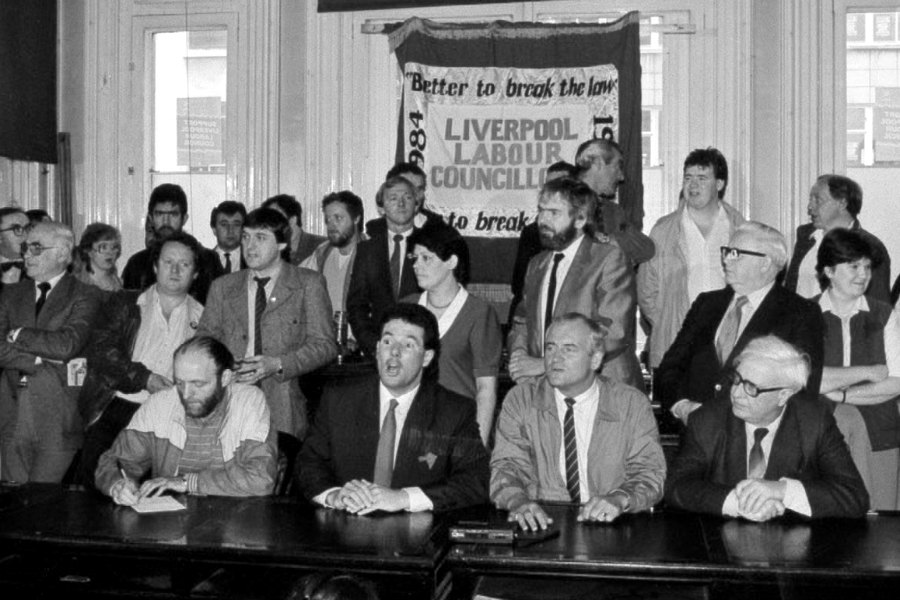Seeking re-election, Liverpool Mayor Joe Anderson has stated that he will not implement Tory cuts. This promise must be the first step in a militant fightback.
In a move that has gained widespread interest and support, Liverpool’s Mayor Joe Anderson has declared that he will not pass on any more Tory cuts.
Responding to the news that the Liverpool council budget will be cut by another £26m from 2021 onwards, Anderson told the local Liverpool Echo: “I will refuse to make any further cuts to our budget.”
Many in the movement see this pledge as a much-needed battle cry to rally the resistance to vicious Tory cuts.
These latest cuts result from a new funding formula. According to the Local Government Association, this will see £320 million shifted from the most deprived areas in England to Tory-controlled councils in the South East. Many of the areas losing funds are the same areas that in December elected Tory MPs. 37 of the 50 newly-elected Conservatives will see their constituencies affected.
Attacks on the vulnerable
Having spent the last 10 years fighting cuts that the Mayor has passed on, however, many local activists are treating his pledge with scepticism. Not only have we already seen £436 million wiped from our coffers, but there are now £30 million worth of savings.
Some of these savings result from bringing services in-house. But the majority will be found through cuts to jobs and services. Support services such as Adult Social Care and Public Health will be reviewed in order to meet financial targets.
These cuts will affect the poor and vulnerable – the very people Labour should be committed to defend. This is summed up by the Impact Assessment for the review of NHS commissioned health services:
“The overarching risk is that the proposal will contribute towards worse health outcomes amongst and widening health inequalities for our most vulnerable communities.”
Mayor Anderson should start his resistance to cuts now.
Fightback against austerity
 Another reason people are sceptical is that Joe Anderson is facing a trigger ballot to determine whether he must fight a reselection battle. If Anderson’s anti-austerity pledge is part of his campaign and he is reselected, then Labour members should hold him to this promise.
Another reason people are sceptical is that Joe Anderson is facing a trigger ballot to determine whether he must fight a reselection battle. If Anderson’s anti-austerity pledge is part of his campaign and he is reselected, then Labour members should hold him to this promise.
At the same time, if this stance becomes part of his election campaign in May, then he will gain widespread support in the city for winning with a mandate to stop the cuts.
Taking all this into account, left-wing Labour activists have been pressing the Mayor, the councillors, and the city Labour Party to organise a mass campaign to oppose the cuts.
Socialist Appeal supporters in the area proposed such a step in a motion one year ago. This passed at every level, showing the mood that exists amongst grassroots members to organise a real fightback against austerity. Unfortunately, however, this was not acted upon.
Without a Labour government, such action – in conjunction with the trade unions and local anti-cuts campaigners – is essential.
Militant example
 At last year’s Labour Party conference, a composite motion was passed about local cuts. Its last clause sets out a battle plan that, with the recent Tory victory, has become more important than ever:
At last year’s Labour Party conference, a composite motion was passed about local cuts. Its last clause sets out a battle plan that, with the recent Tory victory, has become more important than ever:
In consultation with unions and others, an early date will be set for a major national demonstration. All sections of the labour movement will make building this campaign a priority. Labour groups and councillors will play a central, visible and active role, demonstrating to communities that austerity can be resisted and is not inevitable.
If the last sentence is to be made a reality, however, Labour councils must stop passing on the cuts. Instead, they must set budgets that address the needs of the working-class communities they represent, and build campaigns around these.
This is what Liverpool City Council did in 1984-85. In the face of Thatcher’s cuts, the council not only stopped the cuts and increased the workforce by 1,000, but also built 5,000 much-needed council houses.
In order to do this, a huge movement – involving mass community meetings in every ward, and a demonstration on the streets of 50,000 – was essential in backing the councillors.
This is the example to follow. We call on our elected representatives to do so this time round. Far too many Labour councils and councillors in recent years have just gone along with the cuts, imposing them with barely a whimper of protest.
As in the 1980s, let Liverpool be a beacon to show that Tory cuts can be fought and defeated. We expect nothing less.






